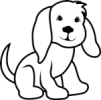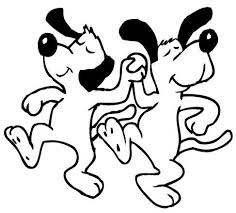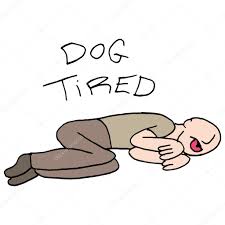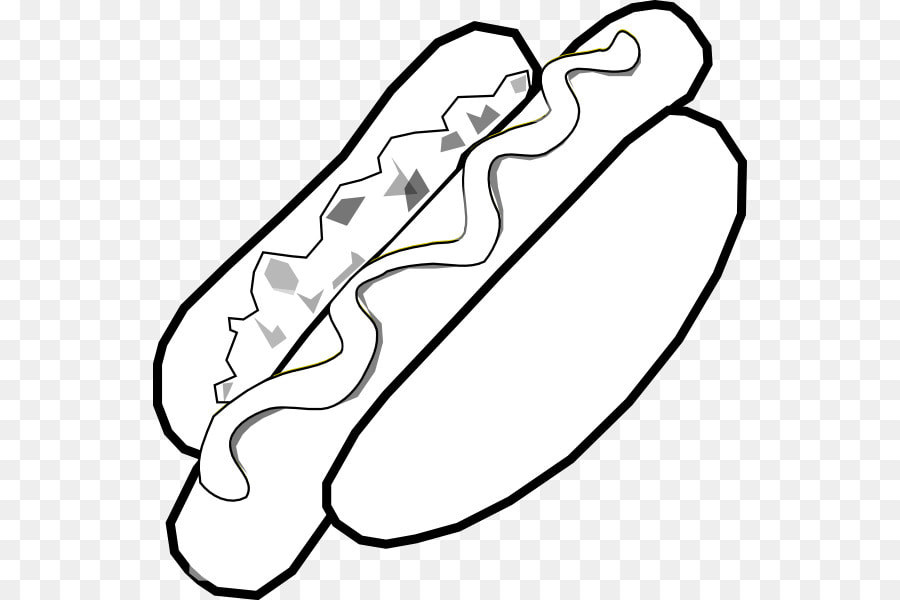
But less mighty than body language and tone of voice. Experts who study the various –ologies dealing with human communication belief is that 55% of communication is body language, 38% is the tone of voice, and 7% is the actual words spoken.
The smallest component – words -- are all the writer has to create a mood or setting; describe a character or an environment; depict sound, odors, textures, and movement; show what characters are doing, saying, and thinking but not saying. Words show the actions and thoughts that create motivation.
The English language is rich and diverse medium to work with. It’s the writer’s task to know words and how to use them to best to sweep the reader into places, feelings, and situations they have never experienced.
https://englishlive.ef.com/words-english

When one googles this question the answer is usually given in terms of how many word are defined in a given dictionary.
The Second Edition of the 20-volume Oxford English Dictionary, published in 1989, contains full entries for 171,476 words in current use, and 47,156 obsolete words. To this may be added around 9,500 derivative words included as subentries.
Webster's Third New International Dictionary, Unabridged, together with its 1993 Addenda Section, includes some 470,000 entries
In fact, there is no way to count the number of words because of several realities:
● First and foremost, language is a living entity which grows, declines, and changes with time, environment, culture, technological advances, fashion, and whim. Language is like every other living entity in that respect, and there is no way we can do anything about it.
● Second, words are constantly being absorbed into English from other languages, such as “cannoli” or "teriyaki." Personally, I’ve observed that often the absorbed word looses in the translation and doesn’t mean in English what it meant in the original language.
● Third, the numerous inflected words, plurals, compound words, and abbreviations leave too many decisions as to what constitutes a word. For example, are all of the inflected forms of "drive," "drives," "drove," etc.–one word or several separate words?
As the Oxford Dictionary puts it, “Is dog one word, or two (a noun meaning 'a kind of animal', and a verb meaning 'to follow persistently')? If we count it as two, then do we count inflections separately too (e.g. dogs = plural noun, dogs= present tense of the verb). Is dog-tired a word, or just two other words joined together? Is hot dog really two words, since it might also be written as hot-dog or even hotdog?”
Nonetheless, Webster concedes that the vocabulary of English is estimated at roughly a million words. “… most linguists would take that estimate with a chunk of salt, and some have said they wouldn't be surprised if it is off the mark by a quarter-million (additional words).” If you could say one word per second, it would take about four years to say every word in the language.
WHEN IS A WORD NOT A WORD?
So, if there are about a million words in English and only, say, half of them are found in dictionaries, we have about half a million plus homeless words hanging around out there. Why aren’t these legitimate words?

Now days, new words are used initially by specialists and subcultures, then gradually spread to the rest of us. Every word moves at its own pace; there is no average speed for a word’s acceptance into the language, the culture, and the dictionary. The dictionary’s job is to report that usage as it enters the general vocabulary. There are several reasons why words are not in the dictionary:
● Not all English-speaking cultures use the same words, and those which are the same may have different meanings. In fact, not all areas of an English-speaking country use the same words.
● Many are scientific terms, such as names of chemicals and scientific instruments, or terms used in professional and other specialized subcultures, and are peripheral to common English usage.
● Foreign language words.
● Slang.
Because many homeless words come and go guickly, they never achieve enough common usage to be promoted into a dictionary entry.

Once a word hits the dictionary citation threshold, isn’t it a word forever? Perhaps in the academic and historical sense, but not in terms of the spoken and written language.
Some experts, such as Edward Allhusen, publisher and author of many books, including Betrumped: The Surprising History of 3,000 Long-Lost, Exotic and Endangered Words, bemoan the tragedy of allowing obsolete words slip away into obscurity. As much as we all love a fizgig, we have to remember language is a living entity. Words can and do die out just like anything else, even though they may offer more precise meanings than those that are added. Words end up on Death Row or become obsolete because:

● The faster technological and cultural advancement moves, the shorter-lived many words, particularly technical ones. Fashionable terms can become passé, and words can be superseded by other ways of speaking.
● They have been replaced with other words, shortened, or abbreviated; it seems our communication technology today fosters the simplification of common usage.
● Slang terms that have become “uncool” because everyone is using them now, not just the subculture that created them just to be different.
When one starts to feel awkward using a particular word, then it’s probably past its prime: under-utilized, unloved, and unwanted. “Fortnight” is a good example. There are many words for a “week”, particularly with the globalization of English. Why don’t we have a word for two weeks, and not three? Why don’t we have fort days? The word has become useless.
According to Benedict Brook, www.news.com.au/technology/words-on-death-row, “The reason language changes is because each generation has to learn a language for themselves, and what they do is construct a slightly changed version.”
NEW WORDS FOR A NEW YEAR
In September, 2018, The Merriam Webster Dictionary added eight hundred and forty new entries and the Oxford English Dictionary added fourteen hundred. All entries are not necessarily new words. Those considered “new” words may be ones we’ve been hearing and using for years and are just now making it into the dictionary. “New” words may be abbreviated forms for other words and phrases we use in casual speech. They may be slang, portmanteau [blended words], redefined or Latinx, a gender-neutral alternative to Latina and Latino.
A few articles identified general categories for new words, and I did my best to place a sample in each, but who knows?
Abbreviations
●TL;DR = "Too long; didn't read” Used to say that something requires too much time to read.
●FWIW = For what it's worth.
●ICYMI = In case you missed it. Used in electronic communication to draw attention to something noteworthy.
●ROFL = Rolling on the floor laughing.
Shortened Words
●FAVE = Favorite. Dates back to 1938. First usage: "Lester Harding, heavy fave here, clicks with pop songs.”
●ADORBS = Extremely charming or appealing : adorable.
●GUAC = Guacamole.
●MARG = Margarita.
●AVO = Avocado.
●DEFFO = Definitely, certainly.
●BOUGIE = A disparaging term for people obsessed with wealth or its trappings.
Shortened form of bourgeoise.
Portmanteau [Blended Words]
●MOCKTAIL = A usually iced drink made with any of various ingredients (such as juice, herbs, and soda water) but without alcohol: a nonalcoholic cocktail.
●GLAMP = Glamorous camping.
Glamping is a portmanteau of glamorous and camping and describes a style of camping with amenities and, in some cases, resort-style services not usually associated with "traditional" camping. Usually not outdoors.
●SCHNOODLE = A mix of schnauzer and poodle.
●CHIWEENIE = A mix of Chihuahua and dachshund.
●YORKIE-POO = A mix of Yorkshire terrier and poodle.
●WEBISODE = An episode of a show that may or may not have been telecast but can be viewed at a website
●STAYCATION = A vacation spent at home or nearby.
Old Words With New Meanings
●HOPHEAD = A beer enthusiast. Originally a slang word, dating back to 1883, for a drug addict.
●GOAT = Greatest of all time. You'll usually hear the acronym as a descriptor for people like LeBron James, Serena Williams, or Tom Brady.
● DUMPSTER FIRE = An utterly calamitous or mismanaged situation. First used in 2008.
● DARK CHOCOLATE = This recently added compound word is meant to clarify that dark chocolate is more than just dark in color, as it usually contains a higher percentage of cocoa and no milk.
New Words
●AIRPLANE MODE = "An operating mode for an electronic device (such as a mobile phone) in which the device does not connect to wireless networks and cannot send or receive communications (such as calls or text messages) or access the Internet but remains usable for other functions."
●AIR PUNCH = An act of thrusting one's clenched fist into the air, typically as a gesture of jubilation or triumph.
●BUDGIE SMUGGLERS = men’s brief, tight-fitting swimming trunks.
●BUTT UGLY = extremely unattractive
●BEDUNGED = That which has been soiled with or covered in dung.
First recorded from the early 15th century. It persists in modern use, but is now considered archaic or used self-consciously for stylistic effect.
●BINGEABLE = Having multiple episodes /parts that can be watched in rapid succession.
●BIOHACKING = Biological experimentation (as by gene editing or the use of drugs or implants) done to improve the qualities or capabilities of living organisms especially by individuals and groups outside of a traditional medical or scientific research environment.
●CARBON FOOTPRINT = The amount of greenhouse gases (specifically carbon dioxide) emitted by something during a given period.
●CRYPTOCURRENCY = Digital currencies use cryptography (i.e., computerized encoding) to prevent counterfeiting.
●DEMONYM = The word you use to describe where you're from.
●FINTECH = Products and companies that employ newly developed digital and online technologies in the banking and financial services industries.
●FORCE QUIT = To force an unresponsive computer program to shut down.
●GENERATION Z = The generation of people born in the late 1990s and early 2000s.
●HAPTICS = The use of electronically or mechanically generated movement that a user experiences through the sense of touch as part of an interface (such as on a gaming console or smartphone).
●HANGRY = irritable or angry because of hunger. First used in 1956.
●HOCKEY MOM = A mother who devotes a great deal of time and effort to supporting her children’s participation in ice hockey.
●INSTAGRAM = To post (a picture) to the Instagram photo-sharing service.
●KOMBUCHA = A fermented tea drink packed in probiotics thanks to the magical effects of yeast and beneficial bacteria.
●LISTICLE = a piece of writing or other content presented wholly or partly in the form of a list.
●LATINX = Of, relating to, or marked by Latin American heritage. Used as a gender-neutral alternative to Latino or Latina.
●NOTHINGBURGER = A person or thing of no importance, value, or substance, especially something which, contrary to expectations, turns out to be insignificant or unremarkable.
First used in 1953 by the Hollywood gossip columnist Louella Parsons, nothingburger is the earliest known example of a type of slang formation in which -burger is used to form compounds referring to a person or thing characterized by a particular quality. Another well-known example of this type is mouseburger(1970).
●PREDICTIVE = As in predictive text: "Of, relating to, or usable or valuable for prediction.
●PREPPER = A person who or thing which prepares or readies something’ as well as a more recent and specific one, ‘a person who anticipates a catastrophic disaster or emergency occurring on a local or global scale and actively prepares for it, typically by learning survival skills, preparing to become self-sufficient, and stockpiling food, ammunition, and other supplies. The earliest use of latter meaning is from a 1998 post on a Usenet newsgroup.
●SCOOBY SNACK = A snack, especially given as a reward or inducement; specifically a bite-sized treat or a large multilayered sandwich. Also: food eaten to satisfy a hunger induced by drinking, smoking, or drug use.
●STARTER MARRIAGE = A short-lived first marriage between young adults, viewed as a form of preparation for a subsequent, more lasting one with different partners.
●TENT CITY = A collection of many tents set up in an area to provide usually temporary shelter (as for displaced or homeless people).
●UPDATION = The action or an act of updating something, a nominalization of the verb update. The word is first attested in American English, and there is evidence of its use around the world, but it is overwhelmingly associated with Indian English.
●TZATZIKI = A garlicky Greek yogurt dip.*
* Foods have to appear on enough menus to make the crossover into English.
●TIME SUCK = An activity that takes a lot of time you could have used to do more productive things. This word dates back to 1991, the year the Internet gained its first website. Coincidence?
●WELP = an unspecific response like hmm, ooh, and mm-hmm, which are also n the dictionary.
●ZOODLE = A long, thin strip of zucchini that resembles a string or narrow ribbon of pasta.
THE LAST WORD
In case you’re still wondering what a fizgig is…
Definition of FIZGIG
1. A gadding flirting girl or woman. (Ancient definition)
2. A firework of damp powder that fizzes or hisses when it explodes
3. A whirligig or spinning toy which makes a whirring sound, like a top.
4. Fishgig: A fishing sword with two or more barbed prongs.
5. In Australian, a snitch or police informer.
Sources
https://www.merriam-webster.com/words-at-play/new-words-in-the-dictionary-september-2018
https://www.merriam-webster.com/help/faq-words-into-dictionary
https://www.merriam-webster.com/help/faq-how-many-english-words
http://mentalfloss.com/article/556420/25-new-words-merriam-webster-adding-dictionary-2018
https://public.oed.com/blog/new-words-notes-september-2018/
https://wonderopolis.org/wonder/how-do-words-get-added-to-the-dictionary
https://www.oxforddictionaries.com/our-story/creating-dictionaries
https://en.oxforddictionaries.com/explore/how-many-words-are-there-in-the-english-language/https:/en.oxforddictionaries.com/explore/how-many-words-are-there-in-the-english-language/
https://englishlive.ef.com/blog/language-lab/many-words-english-language/
https://www.rd.com/culture/almost-extinct-words/
https://qz.com/790750/30-words-and-phrases-that-will-soon-disappear-from-american-english/
http://www.hongkiat.com/blog/dictionary-words-from-internet/
http://nws.merriam-webster.com/opendictionary/newword_display_recent.php
http://blog.dictionary.com/2015-november-new-words/
http://blog.oxforddictionaries.com/2015/08/new-words-update-manspreading-mic-drop/
http://www.marketwatch.com/story/10-bizarre-new-words-youll-now-find-in-the-dictionary-2015-11-10
https://www.theguardian.com/books/2011/aug/21/endangered-words-collins-dictionary
https://www.theguardian.com/commentisfree/2018/nov/16/words-deserve-fall-out-of-use-obscurity
https://www.news.com.au/technology/science/evolution/we-might-use-them-now-but-these-are-the-words-on-death-row-that-could-soon-become-extinct/news-story/cfd15f6cc5a5192e8bc45b140c831d28
http://www.telegraph.co.uk/news/uknews/11827287/The-top-ten-most-unexpected-words-added-to-the-online-Oxford-dictionary.html
https://www.goodhousekeeping.com/life/g25712934/new-dictionary-words/?slide=10
https://www.grammarly.com/blog/slang-words-2018/
https://www.latimes.com/books/jacketcopy/la-et-jc-icymi-dictionary-20160707-snap-story.html





 RSS Feed
RSS Feed